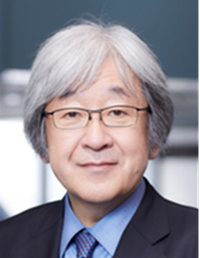Juntendo University (Headquaters: Bunkyo-ku, Tokyo; President: Hiroyuki Daida) and Metagen Therapeutics, Inc. (Headquaters: Tsuruoka City, Yamagata Prefecture; President & CEO: Taku Nakahara) have begun a joint research project on Development of FMT (Fecal Microbiota Transplantation) with Antimicrobial Agents for Parkinson’s Disease from September 2024.
The purpose of this research is to investigate the safety and therapeutic efficacy of FMT for Parkinson’s disease patients. Based on the outcome of the research, the possibility of offering FMT as a new treatment option for Parkinson’s disease patients will be considered.
Parkinson’s disease is a neurodegenerative disease of the central nervous system in which alpha-synuclein accumulates in neurons of the substantia nigra in the midbrain, resulting in the reduction of substantia nigra cells and dopamine. In Japan, Parkinson’s disease is a designated intractable disease with an estimated 290,000 patients*1 . Since the incidence of Parkinson’s disease increases with age, the number of patients is on the rise, and it is predicted that 30 million people worldwide will be affected by the disease by 2030.
While many therapeutic agents exist for the treatment of Parkinson’s disease, there are many unmet medical needs, including long-term effects, side effects, and challenges with motor symptoms that have significant impact on patients’ lives. However, disease-modifying therapies that target the causative agent of the disease have not yet been developed, and new treatments, such as drugs that inhibit progression, are needed. Recent studies*2 suggest a relationship between the pathogenesis of Parkinson’s disease and the gut microbiome and that modulating the gut microbiome may improve the response rate to treatment.
In beginning this joint research, Dr. Nobutaka Hattori, Chairperson and Professor、 Department of Neurology, Juntendo University School of Medicine, commented,

Parkinson’s disease is not just a brain disease, but a “systemic” or “gut” disease. It has been shown that alpha-synuclein, the causative agent of Parkinson’s disease, may start in the enteric plexus and ascend to the substantia nigra of the midbrain, suggesting that gut microbiome may hold the key to the treatment of Parkinson’s disease. The realization of disease-modifying therapies in Parkinson’s disease is a great desire of our medical professionals and patients. We believe that this research is a major step toward the development of a new Parkinson’s disease treatment.”
Taku Nakahara, President and CEO of Metagen Therapeutics, also stated the following;

“We are very pleased to start a joint research project to develop a new Parkinson’s disease treatment with Juntendo University, which is a leader in Parkinson’s disease treatment and research in Japan and has extensive clinical experience in FMT. Parkinson’s disease is an area that requires the development of innovative treatments due to the increase in the number of patients with the aging of the population and its relation to dementia. We are committed to making full use of our knowledge of the gut microbiome, our support services for FMT, and our FMT-driven reverse translational drug discovery platform to bring new treatment options to patients with Parkinson’s disease and their families.”
This research was selected for the first “Next Generation Innovation Fund GAUDI Award” (“GAUDI Award”) in fiscal 2023 by Juntendo University. The GAUDI Award was launched in 2023 as a part of the GAUDI program, an open innovation program that supports R&D seeds all the way through to social implementation. In particular, this research grant program aims to promote industry-academia collaborative practical application research in which Juntendo researchers and companies work together to develop practical applications.
Research Outline
<Purpose>
Development of FMT with Antimicrobial Agents for Parkinson’s Disease
<Method>
To evaluate the efficacy and safety of A-FMT (Antibiotic Fecal Microbiota Transplantation) therapy in patients with advanced Parkinson’s disease in a randomized, double-blind, placebo-controlled, parallel-group study.
<Research Subject>
After removing the patient’s gut microbiome with antimicrobial agents and transplanting a solution of gut microbiome from a healthy donor, MDS UPDRS, a standard method for evaluating the overall function of Parkinson’s disease, is used as the primary endpoint. In addition, as secondary endpoints, α-synuclein seeding by the IP/RT QuIC method*3 , inflammatory markers, changes in gut microbiota, and changes in L-dopa blood levels will be measured.
<Location>
Juntendo University Hospital, Juntendo University School of Medicine
<Implementation System>
・Researcher
Department of Neurology, Juntendo University School of Medicine
Nobutaka Hattori, Chairperson and Professor; Taku Hatano, Senior Associate Professor; Noriko Nishikawa, Associate Professor; Fumimi Okuzumi, Associate Professor; Haruka Takeshige, Assistant Professor; Keiichi Ishikawa, Associate Professor
Department of Internal Medicine and Gastroenterology, Juntendo University School of Medicine
Associate Professor Dai Ishikawa, Assistant Professor Satoshi Nomura, Graduate Student Takashi Maruyama, Graduate Student Rina Odakura, Graduate Student Masao Takama, Graduate Student Masashi Omori, Senior Associate Professor Tomoyoshi Shibuya
・Joint Research Institutes
Metagen Therapeutics, Inc.
Glossary
Gut Microbiome:
The human intestinal tract is home to more than 40 trillion*4 intestinal bacteria of about 1,000 species, and the population of bacteria is called the gut microbiome.
Fecal Microbiota Transplantation (FMT):
FMT is a treatment method in which the gut microbiome contained in the stool of a healthy person is transplanted into the intestines of a patient with a disease to rebuild a balanced gut environment. In addition, in January 2023, Antibiotic Fecal Microbiota Transplantation for ulcerative colitis was implemented as an Advanced Medical Care B Program, a fast-track program which seeks to facilitate patient access to novel but promising healthcare technologies with governmental assessments toward National Health Insurance coverage. Furthermore, a clinical trial (specific clinical research) of “combination therapy with immune checkpoint inhibitors and intestinal microbiota transplantation” for gastrointestinal cancer was initiated in August 2024.
<Reference release>
Antibiotic Fecal Microbiota Transplantation for Ulcerative Colitis Patients Approved Under Japan’s Advanced Medical Care Program
https://www.metagentx.com/en/news/230104_senshinb/
Start of Fecal Microbiota Transplantation Clinical Study for Esophageal and Gastric Cancer Patients
https://www.metagentx.com/en/news/240809_kokugan_clinicaltrial/
Disease-modifying therapies:
A treatment method that targets and acts on disease-causing substances to slow or stop the progression of a disease.
FMT originated reverse translational drug discovery:
FMT is a drug discovery process that uses gut microbiota whose safety and efficacy have been confirmed in advance through fecal microbiota transplantation therapy (FMT). In ordinary drug discovery, drug discovery is based on translational research, which aims for practical application of drugs based on the results of basic research. FMT-driven reversed translational drug discovery enables development with a higher probability of safety and efficacy than conventional reversed translational research. Metagen Therapeutics is building Japan’s first intestinal microbiota bank for drug discovery research to realize FMT-driven reversed translational drug discovery.
About Juntendo University
Juntendo is the oldest school of Western medical education in Japan, originating from the Dutch medical school ‘Wada-juku’ established in Yagenbori, Edo (present-day Higashi-Nihonbashi,Chuo-ku,Tokyo) in 1838, during the late Edo period. Today, Juntendo University is a comprehensive health integrated university and hospital network consisting of nine faculties (Faculty of Medicine, Faculty of Health and Sports Science, Faculty of Health Care and Nursing, Faculty of Health Science and Nursing, Faculty of International Liberal Arts, Faculty of Health Science, Faculty of Medical Science, Faculty of Health Data Science, and Faculty of Pharmacy), five graduate schools, and six affiliated hospitals. Through its commitment to education, research, medical care, and liberal arts, Juntendo University aims to contribute to society and develop human resources on an international level.
About Metagen Therapeutics, Inc.
Metagen Therapeutics, Inc. is a biotech startup founded in 2020 with the mission of “Living up to the hopes of patients through microbiome science” and to create social impact through medical care and drug discovery based on gut microbiome research.
Co-founded by a Juntendo University physician and researchers from Keio University and Tokyo Institute of Technology, the company is promoting social implementation of Fecal Microbiota Transplantation (FMT) and FMT-driven reverse translational drug discovery.
Currently, the company is focusing on development in the areas of immunological diseases (inflammatory bowel disease), oncology, and central nervous system diseases.
https://www.metagentx.com/en/
References:
1. 2020 Patient Survey, Injury and Disease Classification
2. Nishikawa H. et al, Movement Disorder 2020 Sep;35(9):1626-1635.
3. Okuzumi A et al. Nature Medicine volume 29, pages1448-1455 (2023)
4. 3. Sender, R., Fuchs, S. & Milo, R. Revised Estimates for the Number of Human and Bacteria Cells in the Body. PLoS Biol. 14, e1002533 (2016).
